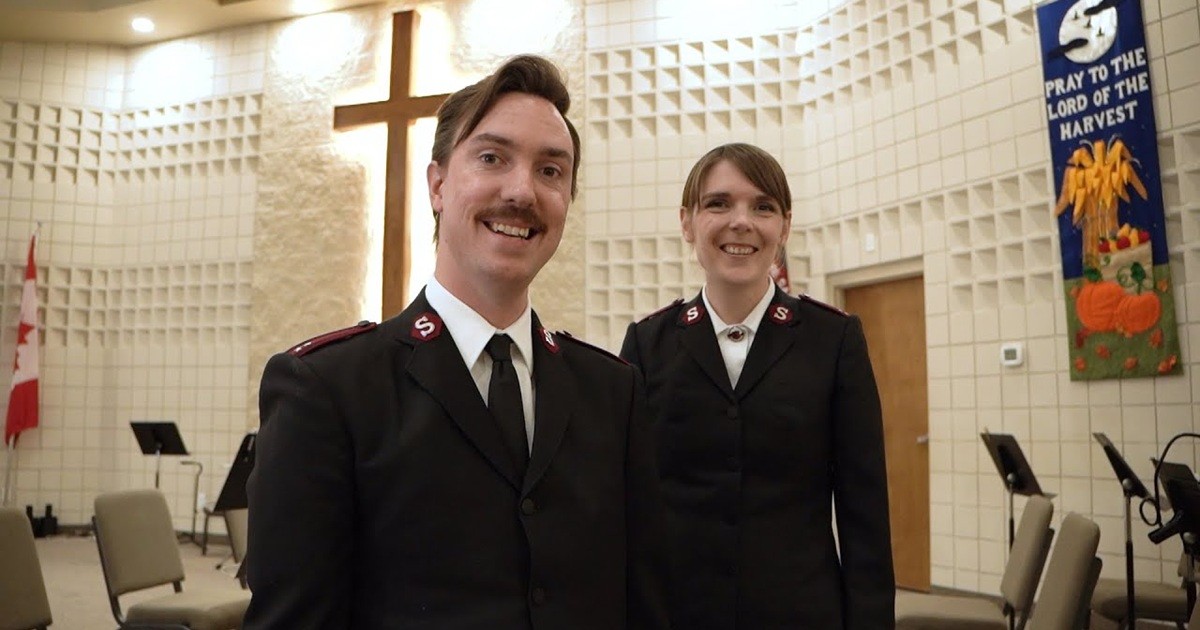“It’s the most wonderful time of the year!” No, it’s not quite Christmas, but for many parents—and some students—this refrain also applies to the back-to-school season. As summer begins to fade, it’s time to hit the books afresh. Walt Disney, a pioneer of the American animation industry, once said, “There’s more treasure in books than in all the pirates’ loot on Treasure Island.” Students are returning to classes to review old lessons and learn new ones in the life-long journey of education.
It may well be worth hearing the call once again to hit the book, with all its treasures to discover and re-discover. The primacy of Scripture was so important for John Wesley that he called himself “a man of one book.” Wesley believed that the living foundation of Christian faith is revealed in Scripture. In the Wesleyan tradition, it is not surprising that The Salvation Army’s first doctrine speaks to this: “We believe that the Scriptures of the Old and New Testaments were given by inspiration of God, and that they only constitute the Divine rule of Christian faith and practice.”
The release of Called to be a Soldier in 2021 reminds us that the Bible is central to our understanding and practice of faith. Throughout the centuries, across countless cultures and in numerous language translations, the Bible has consistently been the source of instruction, challenge, inspiration and comfort for those seeking and following God.
Our Handbook of Doctrine makes clear that “the Bible is the major authority for the Christian.” It outlines that “there are three pillars which provide a secure foundation for Christian faith and practice. These three are: the teaching of Scripture, the direct illumination of the Holy Spirit (see Acts 8:29; 9:10-19; 13:1-3; 16:6-8) and the consensus of the Christian community (see Acts 15:1-29;1 Thessalonians 5:12-22). The Bible is not safely read without reference to the general understanding of the Christian community throughout history, any more than it is understood without the help of the Spirit. Each of these three foundational sources required the authentication of the other two to ensure the gospel truth is maintained.”
And so, as described in Called to be a Soldier, “the task of the church in each generation is to live in ways that are obedient to the authority of the Bible, and faithful to Christian heritage.” John Wesley identified four elements to answering questions about Christian belief and practice. These four elements—Scripture, tradition, reason and experience—together have become known as the “Wesleyan Quadrilateral.”
The primacy and authority of Scripture is understood in the light of tradition, reason and experience. Tradition recognizes that the journey of followers of Jesus to interpret Scripture throughout the centuries can clarify and enlighten the work of biblical study. Wesley argued that without reason we cannot understand the essential truths of Scripture, but that reason must be assisted by the Holy Spirit to fathom the mysteries of God. As Wesleyans, we recognize the value of an experiential faith. Taking Scripture as truth, affirmed by tradition and aligned with reason, our lives and Christian community should give evidence of the power of the gospel of Christ.
In considering the recovery of spiritual authority, the Handbookof Doctrine reminds us that “obedience to the Word of God is first of all obedience to the living Word, Jesus Christ. While some absolutes are evident, the Bible must not be treated as an unbending book of law controlling Christian faith and practice, otherwise it will stifle creative discipleship. Salvationists need to learn how to read the Bible in ways that allow it to speak to both personal experience and the contemporary situation. True authority emerges from learning to understand Scripture in light of the inspiration of the Holy Spirit and the ongoing tradition of the church.”
It may be the most wonderful time of the year in some ways, yet we recognize that these are also days of challenge for many people and for the church. As we watch students return to classrooms, hitting the books and taking new steps in their learning journey, the time is now for disciples of Jesus to renew our commitment to studying God’s Word, both in personal reading and study and as part of a community of fellow Christians in Bible study and small groups.
Commissioner Floyd Tidd is the territorial commander of the Canada and Bermuda Territory.
This story is from:










Leave a Comment